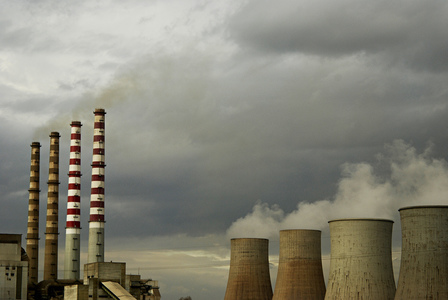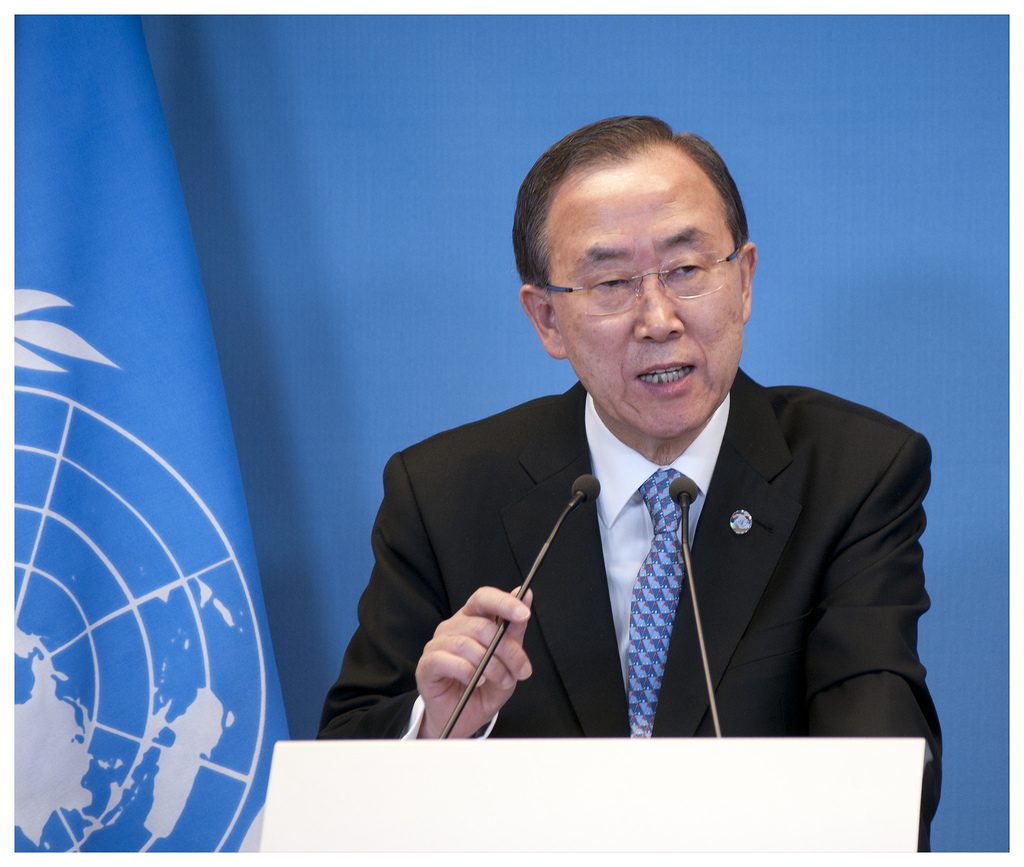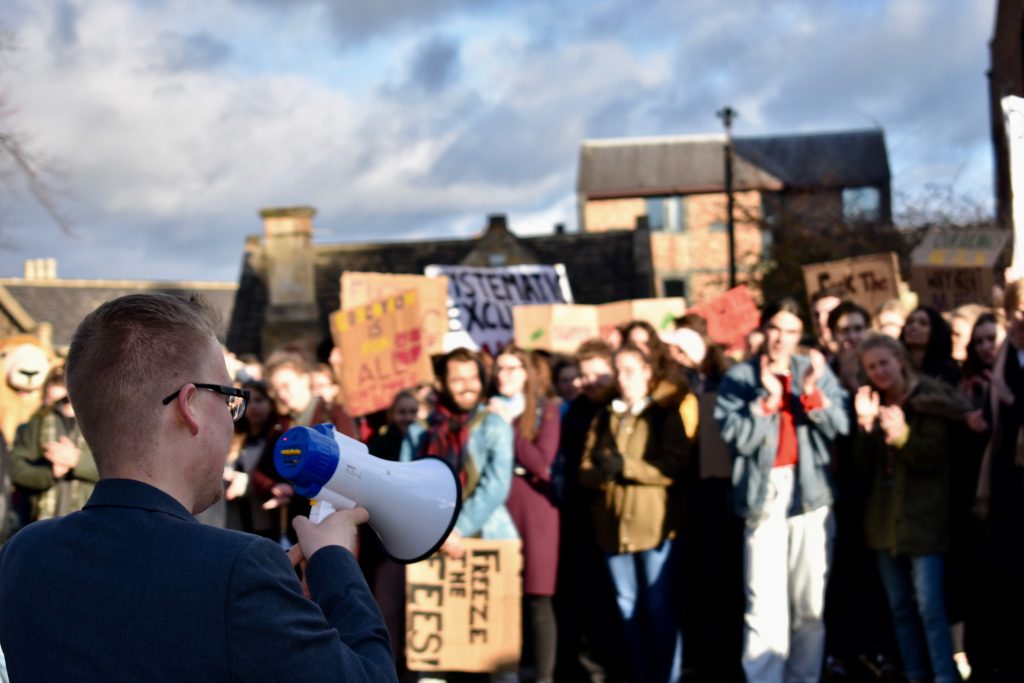UN Secretary General Ban-KI Moon: Wikimedia Commons
“We face a direct existential threat.”
(UN Secretary General Ban Ki-Moon)
Unfortunately, this article will not console, it will not reassure you that provided you recycle and pick up your litter we can reverse climate change; that somehow, our government and international panels will put all else on hold and save the planet.
On the 10th October the Intergovernmental Panel on Climate Change revealed that we must limit global warming to 1.5°, instead of the 2° initially put forward in the 2015 Paris Agreement. We have 12 years to do this.
Allowing climate change to increase beyond 1.5° will be unequivocally catastrophic: Arctic Sea ice will melt altering weather patterns across the Northern Hemisphere, wildfires will increase in severity, oceans will become more acidic threatening food chains, and CO2 levels themselves threaten food security. That is the very basic framework of events that now mark a certainty. More morbidly, Earth could face a sixth mass extinction.

(Wikimedia commons)
The IPCC has issued this report with positive assumptions, the 1.5° already includes the use of afforestation and reforestation, carbon neutral emissions, international unity and agreement, utopian pragmatism.
Predictions date back to the Middle Ages that humans will alter the climate (Ruddiman, 2013), the technology has long been available and even culprit countries themselves (China) have demonstrated that sacrifices can be made to drastically respond to this crisis.
Responding to Climate Change is an obligation, a topic that resurfaces occasionally in the headlines when scientists release new findings, an invisible concept with looming uncertainty that intermittently enters into a conversation between the politically astute and educated.
Therefore, we’ve blown it.
Reality
The bitter truth is that even if every single power station across the globe shut down, every switch turned off, each appliance unplugged, cars brought to a stop, airports ground to a halt- the effects of global warming stated above are a certainty. We have reached a crisis point and the scientists, media, and politicians are not truly willing and committed to make it known.
You

The predominant theme of environmentalism for the ordinary citizen since the rise of the movement after Carson’s Silent Spring in 1963, has been that every action counts. This of course will always remain true, however, this is a superficiality. We may recycle our paper and feel a sense of moral achievement in picking up a cardboard straw, but when the Earth demands an entire revolution in innovative green technology, and a stop to the only fuel we’ve ever universally known- you simply aren’t going to cut it.
Action
I should hope that by this point you will feel a deep sense of fear and shock, frustration at your own efforts (however important and commendable they may be) being futile, and above all anger at how this is not the topic of every conversation and the overarching concern of each and every politician across the world. This marks the quintessential problem, and arguably the biggest mistake mankind will ever face.
Climate change has been and will always be dependent upon the current political cycle, it is used as a political ploy to gain votes and is cut from the agenda just as ephemeraly; David Cameron attempted to go green and even installed a wind turbine on his own roof, but closer to the end of his run ordered officials to “cut the green crap”. Britain’s attitude is improving somewhat, Theresa May believes there is a “moral imperative” to help developing countries tackle climate change and her speech in January showed a commitment to the future. However, these commitments demonstrate the bare minimum at this stage in the Climate Crisis. In order to even begin sustainably tackling Climate Change, we must think beyond 2100.

Theresa May- Wikimedia Commons
And, of course, Brexit is now the key priority. Climate Change has never been a true international priority, and it may never be.
The superpower of world, the driving force of emissions, led by Donald Trump, pulled out of one of the most important climate agreements in history. To protect his citizens from “diminished economic production”. He described the 2015 Paris Agreement as “draconian”.

Donald Trump speaking at CPAC 2011 in Washington, D.C. (Gage Skidmore)
“That is why, today, I am appealing for leadership” (UN Secretary General Ban-Ki-Moon)
The world is at a crisis point , the effects of climate change are not reversible, however this is all the more reason to energise the topic on as many levels as possible- immediately. Countries such as the Netherlands have demonstrated the effects of complete commitment to sustainability. Rather than being paralysed by shock and inability we must open discussions at breakfast, lunch and dinner, get involved in environment societies, write letters to your local MPs.
The UN Secretary General calls for leadership from politicians, from businesses and scientists, and “from the public everywhere.” Do not leave this article with the impression that because you do not currently have political power that you cannot make a difference, every single effort is required.



